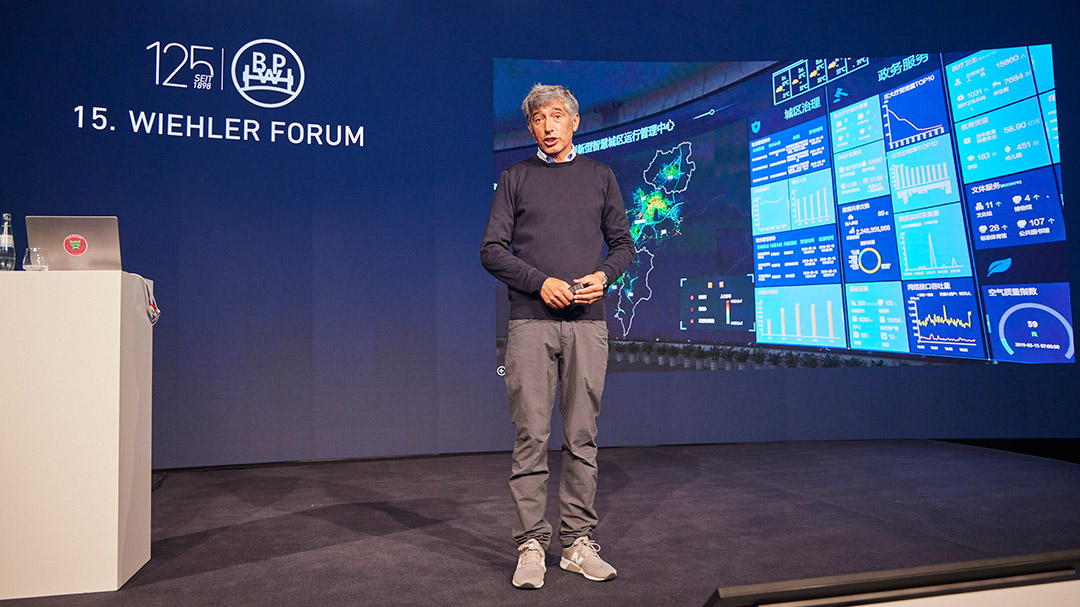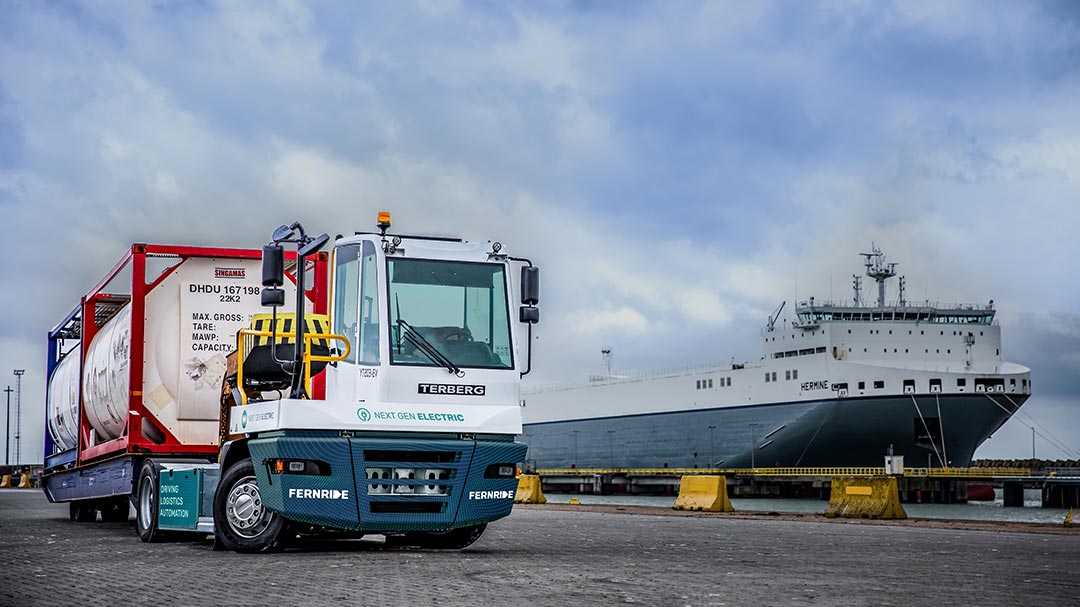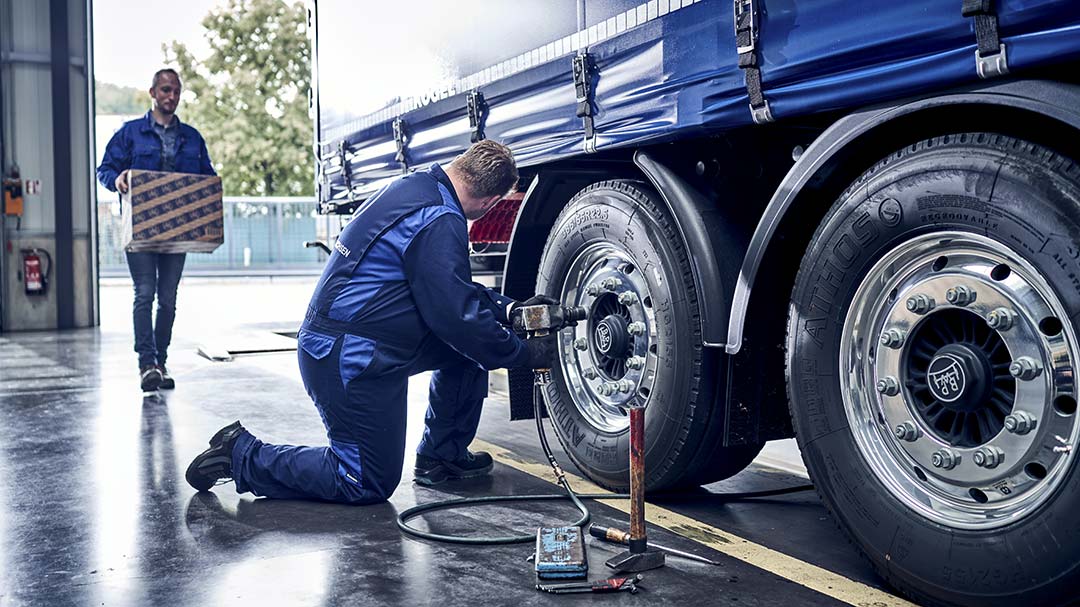Reading time approx. 8 minutes
Text: Juliane Gringer
Photos: Fotolia – peshkov, 2b AHEAD ThinkTank – Roman Walczyna, privat, Nikolay Kazakov
People are curious by nature: we want to investigate technologies, optimise processes and advance ourselves economically. Fascination is a key stimulus for change and thus the driving force for progress.
When Stephan Wolf picked up a toy drone in an electronics shop around eight years ago, he wondered whether such a device – if you made it bigger –could also carry people. He got in touch with Alexander Zosel, a friend and avid paraglider who had already set up several companies. Zosel also seized on the idea: ‘We were both fascinated by the thought. And Stephan knew I was crazy enough to dare to bring such a vision to life.’ They turned this flash of inspiration into a company that is redefining mobility in cities: Volocopter. The two founders of the company consider themselves the inventors of the flying taxi, as the Volocopter is the world’s first manned, fully electric and safe vertical take-off aircraft. It can simply soar over traffic jams and road works, and so would relieve the strain on the traffic in inner-city areas.
Innate curiosity
‘Fascination is the most important stimulus for me,’ says Zosel. The capacity for fascination is innate in all of us – we want to discover the world from the moment we are born. This enthusiasm stays with us and even as adults, we keep feeling fascination– for example for sport, technology or brands.
‘When something extraordinary happens in our lives, we are more likely to become fascinated by it,’ explains Dr Jochen Roose from the German Institute of Urban Affairs. He is conducting empirical research into social change and has investigated the question of why some things fascinate us so much that we become fans, devoting ourselves to them for long periods of time. The extraordinary moment that he describes as a potential trigger for fascination could be a trip, a performance by a band or an advert for an electrical device. ‘We are still in the dark about what exactly is going on at the heart of this,’ says the researcher. ‘But at the start of such a passionate relationship with something, there is almost always a fascinating experience.’
Fans often invest a great deal of time and also money in their interests: they collect memorabilia, travel around following the Rolling Stones, go to watch Borussia Dortmund play away games or buy anything from a manufacturer, ranging from a smartwatch to the full product range. Or they might stay faithful to a brand or company – for instance, always buying the latest mobile phone model. Roose speaks of ‘experience management’ here: ‘When I engage intensively with something, the experience becomes more intense too,’ he explains. ‘If you are a fan of a football team, you share much more of the thrill at a stadium match.’
Technology gives the gift of time
For the Leipzig-based futurologist Sven Gábor Jánszky, fascination is always linked to a vision: ‘A big idea that hasn’t been achieved yet. An idea so big and fascinating that there is a great deal of motivation to get involved and become part of a movement that shares this vision.’ He recalls the fundamental concept on which Google is based: ‘The vision of this company is to make the world’s knowledge available to billions of people for free.’ This then gives rise to new business models, but the fundamental vision is always there at the start.
Sven Gábor Jánszky spends around two hours a day driving on the German motorways in his Tesla. As the car is semi-autonomous on the motorway, he can let go of the steering wheel, lean back, reply to emails and make telephone calls. ‘It was strange at first but I got used to it after a couple of weeks,’ he says. ‘And then I got to thinking about the fact that this technology is giving me about two hours of time every day. If you work it out, over a year I am gaining around a whole month’s worth of time – the most precious resource that a person has. I find it fascinating that technology can give us this very resource. This could make it possible to do a whole lot more in future.’ Even if self-driving cars have not yet been developed to their full potential, Jánszky is convinced: ‘They will definitely reach that stage soon. And then fewer people will be killed in road accidents too. At the moment, 92 per cent of accidents are down to human failures and eight per cent are due to technical failures. Technical failures will continue to happen, but the 92 per cent caused by human failures – this will surely fall.’
»People who question themselves and pursue fascinating approaches determine the course of the world.«
Sven Gábor Jánszky
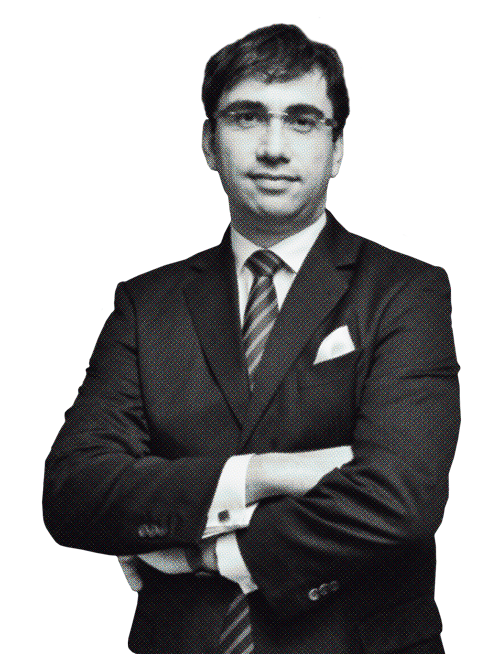
An abundance of energy
In his work, what Sven Gábor Jánszky finds most fascinating are his collaborations with companies on projects that explore the future. ‘As consultants, we are not just looking at other people’s ideas, but we can also bring our own thinking to life.’ Energy and health are two of the topics that his institute focuses on. For instance, he is always coming back to the question of how we can achieve a much more efficient way of supplying the world with energy than we have today. ‘There are various scenarios: for example, special collection systems could divert the power of the sun from the desert or outer space so that the world has an abundance of energy,’ he explains. ‘I find it really rewarding to be involved in such developments.’
Futurologists project scenarios for what such developments could look like and what they mean for the economy, politics and society. Jánszky recommends that companies in the logistics industry do this continually, too: they should ask themselves what megatrends such as digitalisation and automation mean for their own business. ‘Given the current economic upheavals, I would advise virtually everyone involved to think up innovative ideas that could thoroughly challenge what has so far been the core, alongside their existing business. As Steve Jobs said: if you don’t cannibalize yourself, someone else will.’
Jánszky is thinking about the approach of providing pure goods transport for free, for instance. ‘The data obtained could be used to generate additional services that will give rise to new business models.’ He sees this ability to question yourself and pursue fascinating approaches as a key driver of progress and development. ‘I think the people who operate like this determine the course of the world.’ The futurologist finds again and again that fascination is most often born out of small ideas. And that the specific image that is often associated with a fascination can be an extremely strong driver for innovations.
Going 1,200 kilometres an hour
Advancing urbanisation is bringing with it totally new challenges for mobility: cities are getting fuller and fuller but residents still want to get from A to B quickly and safely. While the Volocopter makes use of airspace, the concept from the US company HyperloopTT relies on speed – moving people and goods rapidly through low-pressure tubes. Speeds of around 400 kilometres per hour are currently possible and the aim is to achieve 1,200 in future, a little faster than a passenger jet. The Hyperloop is the brainchild of Elon Musk, the founder of SpaceX and Tesla.
The transport system consists of a tunnel and the vehicle, which travels safely and cleanly using an electric drive. The vehicle is accelerated gradually through a low-pressure tube so that the passengers can withstand the journey. The designers promise that the journey will feel just like air travel – only without the turbulence. During travel, the Hyperloop levitates above the track using magnet technology, whilst the ultra-low air resistance enables the high speeds. The system is intended to operate completely autonomously and – as it is sealed – cannot be affected by the weather. Ten routes are planned initially, in countries such as the USA, Canada and India. HyperloopTT is already building a 320-metre closed test track in the French city of Toulouse.
»Fascination is the most important stimulus for me.«
Alexander Zosel
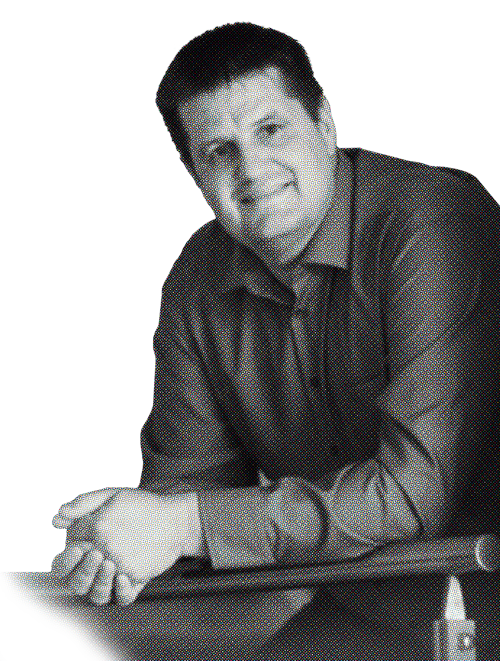
Flying taxis for all
Volocopter also wants to start point-to-point connections in five years. This would allow passengers to board a Volocopter in the city and then travel to the airport or a trade show, for example. The journey would be autonomous, environmentally friendly and without delay. Testing in Dubai is already returning positive results. In the long term, we will reportedly see fully networked systems emerging in places where the growing volume of traffic on the ground becomes unmanageable. Company founder Alexander Zosel is currently 53 years old and before he retires in his mid-60s, he wants to achieve his goal of making these systems of Volo-Hubs and Volo-Ports which will open up the entire city with air taxis a reality.
His company combines the spirit of a start-up with thorough German efficiency. ‘We are of course working intensively on many aspects of this topic, but we only ever announce things to the outside world that we are actually already capable of and that are technically possible,’ explains Zosel. The approvals that will be needed for the new technology are also a challenge for him. But he is getting very good feedback from the various authorities: ‘We are in discussions with lots of cities. They are fascinated by our concept too, not least because of the great potential it offers with regard to safety.’ So all that remains to be convinced is the general public: ‘It is not only the people who are flying who need to accept the air taxis, but also all those people who do not use them.’ The financial aspect is also important: ‘We are trying to facilitate local public transport with this idea. It is not intended to be a technology that is only accessible if you have a large budget.’ The flying taxis are instead conceived for people who need to get from A to B in the city.
Quantum physics and the theory of relativity
‘The world is at an important turning point as we move away from the age of oil and towards electric mobility. It is exciting to see how this change is happening,’ says Benjamin Wolba. He has found a topic that fascinates him early in his life: at the age of just 20, he is around a year into his doctorate in theoretical solid-state physics at TU Dresden. He discovered his enthusiasm for science at the age of around 13: ‘When I was in about year seven, I realised that there is much more than the physics that is taught in school.’ He started asking questions such as ‘Why can’t things go faster than light?’ and found the answers in quantum physics and the theory of relativity. ‘I wanted to understand this from the bottom up, so I needed to learn a lot of maths and it was a logical step to study differential calculus.’
The urge to learn more about quantum physics was also the motivation for him to start early studies at TU Dresden, where particularly motivated students can attend in normal university lectures from just the ninth grade. Once he had begun his early studies, Wolba stopped differentiating between free time and study time. He explains: ‘My work is the thing that fascinates me. It is a hobby for me – like playing football is for other people.’
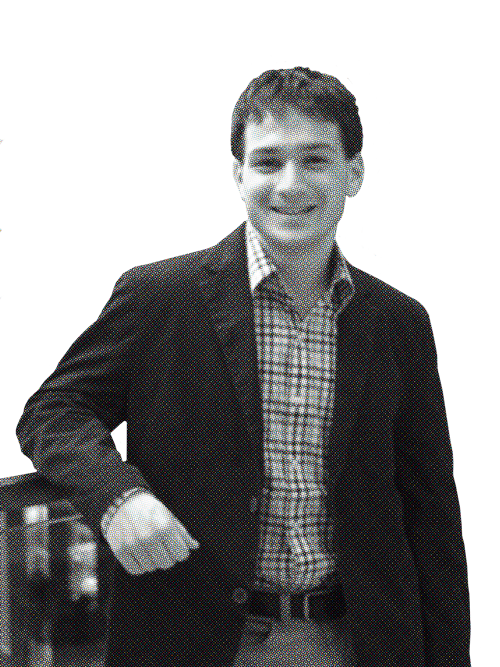
»My work is the thing that fascinates me. It is a hobby for me – like playing football is for other people.«
Benjamin Wolba
»My work is the thing that fascinates me. It is a hobby for me – like playing football is for other people.«
Benjamin Wolba

Developing brand new approaches
According to Wolba, he is always impressed by how situations occur in research when ‘for one moment, you know something that nobody else knows’. This has happened to him several times: ‘For my master’s thesis I was studying solid-state bodies that do not conduct current and yet, there were areas that were doing this. I developed a brand new approach to describe this transmission of current,’ says Wolba. ‘I find these new and surprising things really exciting.’ For his doctorate, he is looking at exotic forms of magnetism. ‘For me, fascination goes hand in hand with the questions that I ask myself,’ he explains. ‘I want to look into a thing in detail because I desperately want to find out what lies behind it. But this interest also develops when you are studying something intensively and come across new topics.’ He believes that curiosity is what drives this. For Wolba, fascination is the foundation of all scientific work – and is ultimately key to overcoming the difficulties that this work entails: ‘A career in research means a great deal of uncertainty and paperwork. If you are not fascinated by the topic you are researching, you won’t survive.’
He is also enthusiastic about the developments in transport: ‘I find it really exciting to see how electric mobility will develop in future, for example,’ says the young researcher. There are also many unanswered questions when it comes to topics such as battery technology: ‘How do you store energy and make it available? I’m really interested in challenges like this.’ He can easily see himself going into this industry after his doctorate or founding a start-up himself. ‘Physics is the foundation for many subjects, including digitalisation, for instance,’ he explains. ‘Physicists and other scientists have valuable contributions to make here.’
Creating new mobility
New impetus is not only coming from the world of science – the transport industry takes its main source of motivation from its customers. Every day, millions of vehicles are on the move on the roads, goods are being transported and the supply chains still have plenty of potential for optimisation. The customers themselves know best what they need. Finding the right solutions is an exciting challenge that will continue to evolve.
Alexander Zosel hit upon the ‘idea of his life’ with Volocopter: ‘We are still doing something new every day,’ says the entrepreneur. ‘I can’t image starting over again with something totally different and I have no desire to do so because there is still so much to come in my current endeavour. We are creating a new type of mobility – this is a long-term process that still has many exciting aspects to unveil.’


